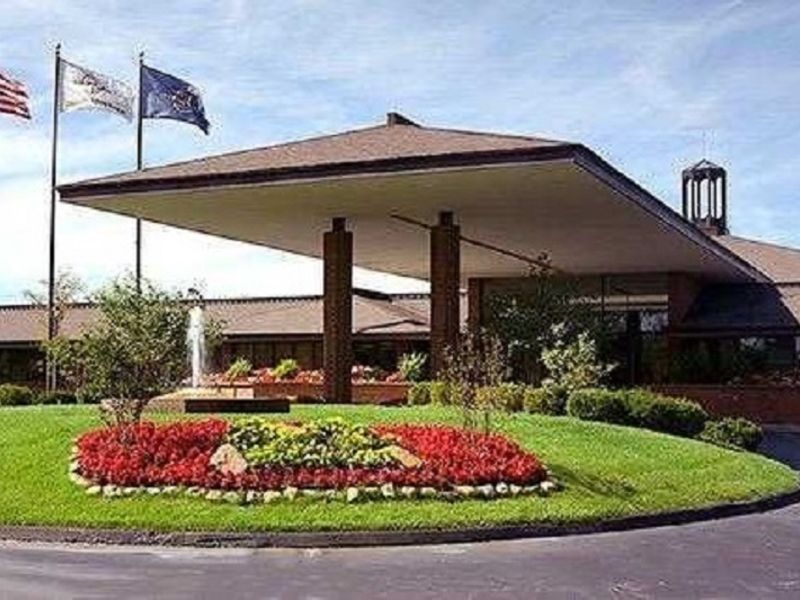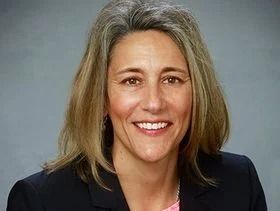 The West Bloomfield Health & Rehabilitation Center is paying employees bonuses to convince them to take overtime shifts to cover its staffing needs.
The West Bloomfield Health & Rehabilitation Center is paying employees bonuses to convince them to take overtime shifts to cover its staffing needs.
Nursing assistants at the West Bloomfield Health & Rehabilitation Center fetch anywhere from $50 to hundreds of dollars on top of overtime pay to fill shifts.
The administrators are desperate. A labor shortage in the field has left the 172-bed facility paying out these one-time bonuses on the regular, as much as $1,000 total a day for its staff, to ensure the nursing home doesn’t fall below state and federal staffing requirements.
“We have no choice,” said Justin Spiro, an assistant administrator and co-owner of the home. “We’re short-staffed every morning when we wake up, and we move heaven and earth to make sure we’re not by breakfast. But it’s just not sustainable to pay out hundreds of dollars a day. If this goes on for too many more months … we can’t just close for the day because we’re short-staffed.”
Other homes around the state have closed wings and consolidated residents into smaller areas where the reduced staff can provide the proper care, said Melissa Samuel, president and CEO of the Heath Care Association of Michigan, the state’s largest industry group representing nursing homes and rehabilitation centers.
The shortage is widespread across the U.S., with 99 percent of nursing homes and 96 percent of assisted-living centers in the country facing staffing shortages, according to a Sept. 22 survey by the American Health Care Association and National Center for Assisted Living.
 Melissa Samuel
Melissa Samuel
Administrators and experts fear the situation will get more dire when the Centers for Medicare & Medicaid Services enacts an Aug. 18 executive order by President Joe Biden to mandate the COVID-19 vaccine across the entire healthcare sector, including nursing homes. The mandate is expected to go into effect this month.
“Some have already left the field because of the (vaccine) rule, and it hasn’t even come out yet,” Samuel said. “Once the rule is out, we are going to face an even greater crisis.”
Caretaker comorbidities
The nursing home industry has faced a labor shortage since 2016 and it’s only been exacerbated by the pandemic, said Sheria Robinson-Lane, assistant professor of nursing at the University of Michigan, gerontologist, registered nurse and former nursing assistant.
“What’s happening now shouldn’t come as a shock to anyone,” Robinson-Lane said. “We’ve been heading toward this crisis for a few years. Now we’re here.”
Obvious contributors to the crisis are the industry’s difficult working conditions and low pay.
Nursing assistants in metro Detroit start at around $12-$13 per hour with a national median wage of $14.90 per hour, Robinson-Lane said. About 40 percent of nursing assistants in the field rely on public assistance or are without health benefits, she said.
But raising pay remains difficult as nursing homes’ largest payer is Medicare and Medicaid, with largely fixed rates.
“CMS pays for all that room and board, all of the medical care, all of the pharmaceuticals and treatments,” Robinson-Lane said. “The everyday costs of running a home eat up those payments really quickly.”
Spiro said West Bloomfield Health is in a better position than most because it pays its workers above its competitors, but that it too is losing staff due to COVID-19 pandemic burnout and the rules around the pandemic.
“The turnover is much more stable now than it was, but we are seeing people leave the industry,” Spiro said. “They are just tired. They are tired of wearing a mask all day long, of the constant testing. It’s a hard job. So while we pay more than anybody, it’s just a less appealing industry to work in.”
West Bloomfield Health follows state and local protocol of weekly testing for all employees, more if there is exposure or a positive case.
Working in a nursing home was one of the deadliest jobs in 2020.
Workers in skilled nursing facilities had at least 80 deaths per 100,000 full-time employees last year, and estimate that is likely low due to CMS only requiring the reporting of worker deaths as of May 17, 2020. There were likely many deaths that occurred in late March and April in nursing homes.
The statistics made working at a nursing home far deadlier than logging, roofing and construction.
“We are still dealing with COVID,” Spiro said. “Our workers can see people are going to football games and going out to eat at restaurants or returning to the office. Life is back to some sort of normalcy on the outside, but for healthcare workers, it’s just not.”
Medical mercenaries
Those who remain are working more and more hours to keep the nursing homes within federal and state staffing guidelines.
Of those surveyed by the AHCA and NCAL, 99 percent of respondents have asked staff to work extra shifts.
Roughly 69 percent of nursing homes have resorted to hiring temporary staffing agencies to keep the nursing home operational. The result of that is nursing homes paying an agency a much higher wage for the same worker.
“Because of the shortages and desperation from the nursing homes, nurses and nursing assistant have left for agencies where they could make more per hour and work for different employers,” Robinson-Lane said.
For West Bloomfield Health, they’ve had no choice but to hire agency labor, but it’s come at a steep cost, Spiro said.
“(Staffing agencies) just kill you,” Spiro said. “We’re having to pay two or two-and-a-half times the normal rate for workers. A registered nurse is around $37 an hour, so now we’re paying them at least $70 an hour. Just for one person.”
Spiro said the extra bonuses and more expensive agency staff are becoming more and more problematic as federal support during the pandemic has dried up.
“The government was giving massive checks that got everyone through the first 18 months (of the pandemic),” Spiro said. “We could pay what we needed to get through the day because we were going to get reimbursed. Now that’s done and we’re in the wild, wild West, and I don’t know what’s going to happen.”
Coup de grace?
CMS is predicted to lay out its mandate for nursing homes to require staff vaccinations in mid-October.
For Spiro, this could spell disaster. He projects only about 40 percent to 60 percent of his staff is fully vaccinated.
“The majority of our staff are vaccinated, but enough have refused that the mandate may be a big problem,” Spiro said. “If we lose 10 percent or 15 percent of our labor force, I don’t know how this industry would carry on right now.”
Spiro isn’t alone, as 78 percent of respondents to the AHCA/NCAL survey are concerned they will have to close down if the shortages persist or get worse due to the mandate.
According to CMS, about 64 percent of the more than 520,000 nursing home staff in the U.S. were vaccinated against COVID-19 as of Sept. 12.
That leaves more than 187,000 yet to be inoculated, including Chiquita Keen-Johnston, a nursing assistant at Beaumont Commons nursing home in Farmington Hills.
Keen-Johnston has been a nursing assistant for 32 years, including 13 years at Beaumont Commons. But she has no plans to take the COVID-19 vaccine.
Instead she has sought a medical exemption for an undisclosed condition. Employers are legally required to allow certain medical exemptions to the vaccine, but the threshold is very narrow.
Keen-Johnston falls under Beaumont Health’s vaccine mandate, which was issued last month and goes into effect on Oct. 18, that ultimately will be trumped by CMS’ order.
“I am not taking the vaccine,” Keen-Johnston said. “I have not heard back on my medical exemption. But I will let them fire me if I don’t get it.”
Keen-Johnston said all the unvaccinated nursing assistants at Beaumont Commons are waiting to be terminated instead of quitting so they can draw unemployment while they seek employment elsewhere. Keen-Johnston said she plans to devote more time to her small business, Unique Touch 919, which makes personalized items such as memorial blankets.
Samuel and the ACHA have been in communication with CMS in hopes the agency will allow for a more rigorous COVID testing regimen for the unvaccinated instead of an all-out vaccine mandate. But she’s not overly hopeful the mandate will be watered down.
“Until we get the pandemic under control, this is going to be a challenge in the industry,” Samuel said. “Our staffing challenges feed off the pandemic. We just need to get it under control.”
Spiro said the nursing home continues to apply the pressure via information, but only only so many people are willing to take the vaccine.
“We have digital billboards in our buildings and post information everywhere we can,” Spiro said. “We’re walking around now telling people the mandate is coming, but we’re running out of time. We tell them to look around the building. It’s safe. We haven’t seen one adverse reaction.”
Robinson-Lane said most nursing home staff will ultimately align with hospital workers who opposed the mandate but ultimately most got inoculated.
For instance, Houston Methodist mandated the vaccine in June for its roughly 26,000 employees, and only 153 quit or were terminated at the deadline.
“Nursing assistants and staff will complain, but when the mandate comes down, they mostly comply because they need the work,” Robinson-Lane said. “With the mandate being industrywide, there’s not as many places to go. People just won’t have the flexibility they do right now.”
Related Article  Nursing home vaccination rates lower at for-profit sites, those with poorer Medicare star ratings, study finds
Nursing home vaccination rates lower at for-profit sites, those with poorer Medicare star ratings, study finds  Alabama redirects $12.3 million in CARES funding to mitigate nursing shortage
Alabama redirects $12.3 million in CARES funding to mitigate nursing shortage  Kansas nursing home employees missing vaccine targets
Kansas nursing home employees missing vaccine targets  CMS will not immediately remove nursing homes from Medicare and Medicaid over vaccine requirement
CMS will not immediately remove nursing homes from Medicare and Medicaid over vaccine requirement  Nursing home worker vaccine mandate could worsen staffing crisis, affect resident care
Nursing home worker vaccine mandate could worsen staffing crisis, affect resident care  Nursing home overhaul bill would boost staffing, oversight
Nursing home overhaul bill would boost staffing, oversight  Worker shortage stymies vaccine mandates at nursing homes
Worker shortage stymies vaccine mandates at nursing homes
Source link : https://www.modernhealthcare.com/labor/nursing-homes-brink-covid-vaccine-mandate-may-worsen-staffing-crisis











